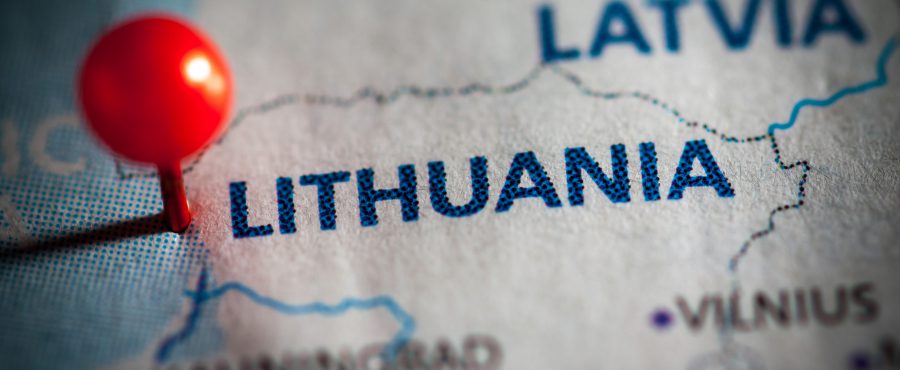
Purchases of crude oil and petroleum products are simple and the prices of the products are regulated by international markets. With biomass this is much more complicated, so numerous market players do not even attempt to reach out for this solution. Lithuanians had a systemic approach to this matter.
After Baltpool was created, everyone who needs to buy biomass, particularly as pellet or briquette, may register on this electronic platform and place an order there. They need to precisely specify the place of delivery, quantity and class of the biomass.
Afterwards, a Dutch auction follows – biomass providers keep reducing their prices and each reduction prolongs the auction by another three minutes. The platform vets the providers – their credibility and capability to deliver the ordered biomass. When the ordered biomass volume exceeds the production capacity of a single provider, the entities may merge to jointly deliver the ordered volumes. The contract is awarded to the provider who offers the lowest price. According to the data provided by the platform, in 94 per cent of the cases, the delivered biomass meets the quality requirements. In 6 per cent of the cases, the issue is above-average content of cinder in biomassI)http://energypost.eu/trading-biomass-like-oil-lithuania-shows-how-it-can-be-done/.
The Baltpool Platform was established in 2010 and in 66 per cent it is owned by EPSO-G, a state-owned operator of electric and heat networks. Another 33 per cent is held by Klaipedos Nafta, a state-owned enterprise managing oil and gas loading terminals in Klaipeda. The solution was originally used for trading gas and oil, but since 2013 it has been used for handling the Lithuanian biomass market.
In 2017 the platform had 292 registered members (both providers and sellers) and this is the first-choice platform for all those interested in trading biomass.
In the shadow of the big brother
The development of Lithuania’s biomass market resulted from a concern about the country’s energy security. Lithuania purchased energy raw materials mainly from Russia, which uses its natural resources as means of foreign policy pressure. As a result, building a strong, local market of providers of raw materials for heating allowed Lithuania to secure the interests of its citizens and become independent of the partner who had dictated the terms and conditions.
Using the Baltpool Platform allowed Lithuania to keep low prices of biomass used for heating, despite the generally growing prices of firewood.
Cities running on biomass
Solid biomass, traded on Baltpool, is now used for generating 17 per cent of Lithuania’s power. This raw material is particularly visible in the city central heating market, where biomass generates over 60 per cent of heat energy. According to the Lithuanian government’s plan, this percentage is to grow up to 80 per cent in 2020. The biomass share is also going to rise in the field of power generation, from 33 up to 55 per cent and in the field of heat generation for industry – from 6 up to 20 per cent within the same period of time. A strong argument for using biomass is definitely its price. An average price of a tonne of oil equivalent in biomass costs about 115 euro, while for gas the price is 1,989 euro. At the same time, in 2013 Lithuanian users had to pay 600 euro per tonne of oil equivalent in the case of gas.
With biomass, it was possible to significantly reduce heating costs. For instance, Kaunas made reductions by 50 per cent, while Jonava – by 30 per cent.
Country running on biomass
According to LitbiomaII)http://www.lsta.lt/files/events/170321_Lenkai/Pranesimai/Litbioma%20_%20Vilma%20Gaubyte%20_%20Bioenergy%20in%20Lithuania%20low%20prices%20new%20jobs%20….pdf, an organisation that supports biomass energy development in Lithuania, the country’s annual demand for power totals 31 terawatt hours, of which 11 is used for generating electric power and 20 – for heating.
At the same time, the potential for generating RES energy is as high as 40 terawatt hours, 63 per cent of which from biomass (excluding waste biomass).
| I. | ↑ | http://energypost.eu/trading-biomass-like-oil-lithuania-shows-how-it-can-be-done/ |
| II. | ↑ | http://www.lsta.lt/files/events/170321_Lenkai/Pranesimai/Litbioma%20_%20Vilma%20Gaubyte%20_%20Bioenergy%20in%20Lithuania%20low%20prices%20new%20jobs%20….pdf |




